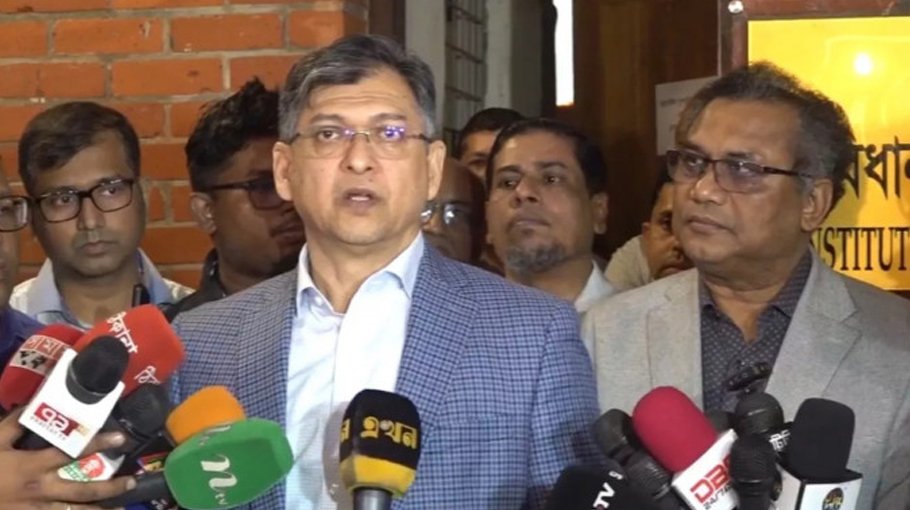BNP proposes two terms for PM in a row

Introduce bicameral parliament
Reinstate the caretaker government provision
Bring a balance between the powers
between President and Prime Minister
The Bangladesh Nationalist Party (BNP) on Tuesday submitted over five dozens of constitutional reform proposals, including incorporating a provision in the national charter not allowing more than two terms for Prime Minister in a row, introducing bicameral parliament, reinstating the caretaker government provision and bringing a balance between the powers exercised by the President and Prime Minister.
But, the party thinks that the elected government would implement these reforms.
A two-member BNP delegation led by standing committee member Salahuddin Ahmed handed over the written 62 proposals to Ali Riaz, Chairman of the Constitution Reform Commission, at the Parliament building.
One of the major amendment proposed by the BNP is that no individual will be able to hold the post of the Prime Minister more than consecutive two terms to avert the rise of autocracy.
The other proposals include reinstating the positions of deputy prime minister and vice president and reintroduction of referendums to enhance public participation.
After placing their proposals, Salahuddin told reporters that the BNP submitted the written proposals in light of the 31-point reform proposal that they had previously made to overhaul the state structure.
“From the preamble to the schedules of the Constitution, we have proposed amendments. We hope the commission will consider our suggestions,” he said.
“These reflect the aspirations of the people, the spirit of the martyrs of the July-August revolution, and the current realities of Bangladesh,” he said, adding that if the suggestions are implemented no parliamentary autocracy or dictatorship can emerge in the future.
Responding to another question, he said, “We have proposed reintroducing Articles 48, 56, and 142 of the Constitution, which have been removed by the past Awami League-led government.”
Salahuddin also said that they recommended that there should have a balance of power between the Prime Minister and the President.
Over the judicial reforms, he said, “We proposed that lower courts be brought under the control of the Supreme Court to ensure proper oversight.”
He further highlighted the need for reinstating the caretaker government system, calling it ‘the number one demand of the people.’
He said that the matter is pending in court, he added, “We hope the verdict will favor public side.”
The BNP also called for constitutional provisions to allow referendums, which had been part of the country’s earlier democratic practices.
Salahuddin said, “We have focused on all aspects of the constitution, including the executive, judiciary, legislature, and Election Commission. Our aim is to ensure a democratic balance of power among all branches of the state."
When asked whether the interim government will be able to implement the proposals made by the BNP for constitutional reforms, Salahuddin said, “The Constitutional Reform Commission will propose its recommendations to the government. The chief adviser of the interim government has said that he will discuss it with everyone after the recommendations are given.”
He added that the interim government will finalise the proposals after discussion with political parties, stakeholders, experts, and people from different sections of society.
“There may be disagreements in some cases. But if we commit to all the issues that everyone agrees with and reflect that in the election manifesto, then whoever comes to parliament in the future will change the constitution in that way.”
On Nov 3, Riaz stated that the commission would contact all political parties and request them to send their written proposals.
Meanwhile, the commission has already begun exchanging views with other stakeholders, including prominent citizens.
According to a press release sent by the Constitution Reform Commission on Monday, more than 47,000 people have so far given their opinions on the reforms on the commission’s official website.



